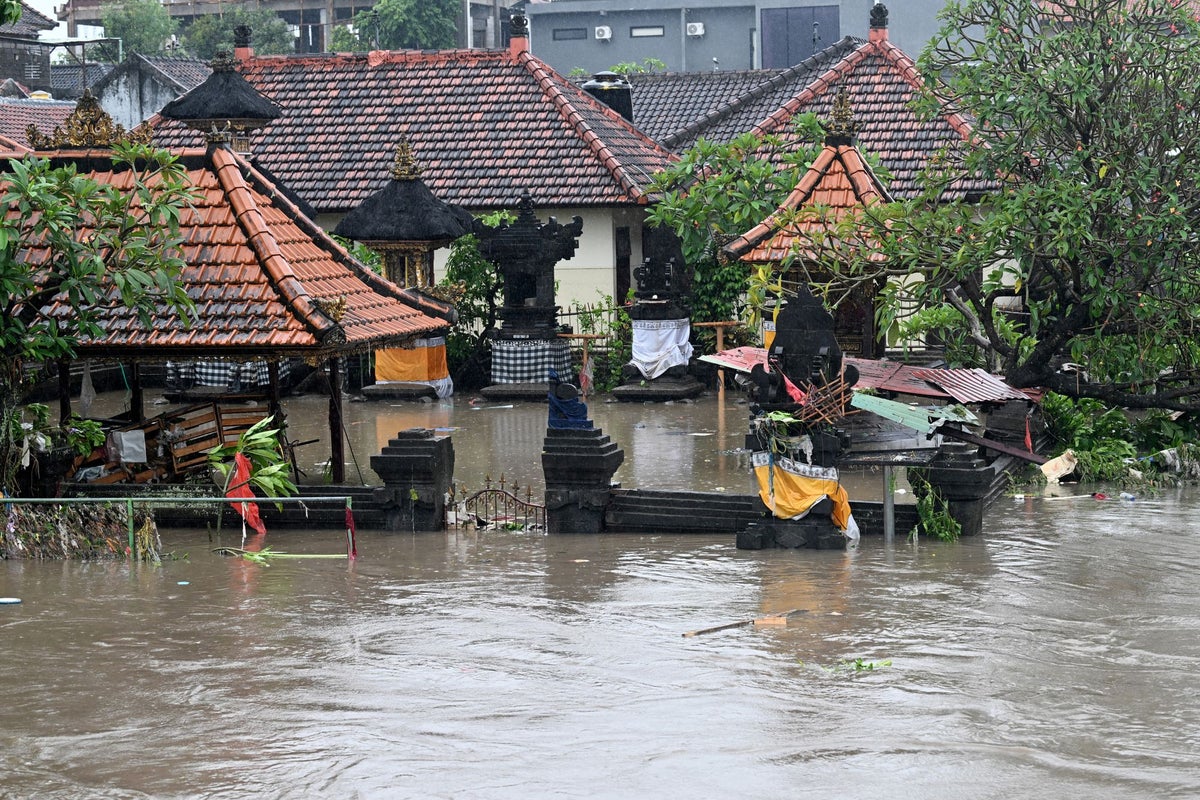Bali is considering a ban on the construction of new hotels and restaurants following devastating flash flooding earlier this month.
On 10 September, a state of emergency was declared on the Indonesian island after at least 18 people died during the most severe flooding in Bali in over a decade.
Heavy rain caused rivers to burst their banks, tearing through nine cities and districts and submerging at least 112 neighbourhoods, Bali’s Disaster Mitigation Agency said in a statement.
Now, the government plans to stop new permits for building on “productive land”, including Bali’s famous rice fields. Experts believe stricter controls could help mitigate the impact of flooding and other natural disasters.
According to Indonesia’s state news agenecy, Antara, governor Wayan Koster said: “After handling the floods, we will meet again to ensure no more permits are issued for hotels, restaurants, or other facilities on productive land, especially rice fields.
“Starting this year, the land conversion ban will align with Bali’s 100-year plan. From 2025 onward, no productive land can be converted into commercial facilities”.
Heavy seasonal rain from September to March frequently causes flooding and landslides in Indonesia.
The regional bylaw prohibiting land conversions follows recommendations from Bali’s environment minister, Hanif Faisol Nurofiq.
Hanif Faisal Nurofiq said: “This is also crucial for Bali’s tourism, as the recent flooding has drawn serious attention.
“I actually told the governor last week that I really hope he will immediately stop land conversions in Bali. This is extremely important.”
According to Antara, land conversion for private residences will be granted by the government with selective permits, but not for commercial properties.
Environmental activists have repeatedly warned of mass tourism’s impact on the island. In March, Bali authorities issued new guidelines to address “misbehaviour” among foreign tourists.
The rules, issued by the Bali governor, include respecting sacred sites, dressing modestly, behaving politely, paying a tourist levy online, using licensed guides and accommodations, following traffic laws, and exchanging currency at authorised outlets.
Read more: The major holiday hotspots cracking down on overtourism

